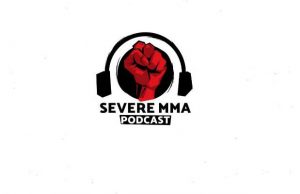A sportsperson’s legacy is often defined less by the successes at the peak of their careers and more frequently by the manner in which they finally bow out. It’s easy to forget one’s achievements when the lasting image you’re left with is that of a fallen great, competing way past their prime – often against younger, more able athletes. This is never more cruel than in combat sports, where a decline in physical ability can be very costly indeed. With that in mind, the recent ‘indefinite hiatus’ of UFC welterweight champion, Georges St Pierre, should require little explanation.
Having competed in the UFC for a little under ten years, defended his belt a record 9 times (consecutively) and regularly been among the company’s biggest PPV draws, St. Pierre has been nothing but a model employee and a figurehead for the sport of MMA as a whole. Leaving a legacy has appeared to be a driving force behind St. Pierre’s desire for continued greatness for some time now – and given how MMA is not a sport that one compete in past their prime without coming to any real harm, and by proxy, harming any legacy you leave behind – walking away at this point was a logical conclusion.
There are a number of motivating factors than can convince a fighter to compete past his or her best, none moreso than money. Compare and contrast the Mike Tyson who ran through Michael Spinks in 91 seconds back in 1988 with that of the out-of-shape 41 year old who quit on his stool before the 7th round against Kevin McBride in 2005. Tyson had no desire to fight, only to cash one final cheque before leaving the sport entirely. Though this in no way diminishes his numerous documented achievements, it remains one of a number of blots on his later career and a less than impressive swan song.
The mark of a truly great professional athlete can be measured by not only their achievements within their respective fields, but also knowing when to retire. Would Joe Calzaghe or Rocky Marciano be so rightly revered had they stuck around years past their best and faded before a watching public? Retiring undefeated is, at a high level of competition, a staggering accomplishment and something to be applauded and encouraged. The benefits to a sport of having healthy, coherent champions, able to live their lives after retirement unhindered by years of competition should be obvious: Does a slurring James Toney promote boxing to a wider audience? Did Chuck Liddell’s numerous, needless knockout losses at the end of his career go any way to dissuade the consensus predilection of what MMA is?
Of course, not all athletes simply fade away later in their vocation. Had Randy Couture walked away from competing at an early age, he almost certainly would have missed out on his entire MMA tenure and accomplishments therein (though one less fight might have saved him his front teeth). Some can adapt their game for longevity and be just as successful – Bernard Hopkins has continued to box on into his late 40’s, becoming the oldest man in the history of the sport to win a major title. When Lothar Matthäus approached the latter stages of his footballing metier, he compensated for a decline in pace by moving to a sweeper position, thereby utilising his other, more refined attributes. Knowing when to walk away is perhaps one of the most difficult decisions for an athlete to make.
Few sportspersons have what it takes to compete at the top of their profession and be victorious, even fewer walk away whilst still in good shape. To make such a decision in combat sports is to preserve not only the legacy one has cultivated for themselves, but also their health and general wellbeing. Au revoir, Georges, and (in the nicest possible way), don’t look back.
By JJ Saddington – @JJSADDINGTON





1 thought on “Getting Out Alive – The Liberation of GSP And Other Great Sporting Escapes”